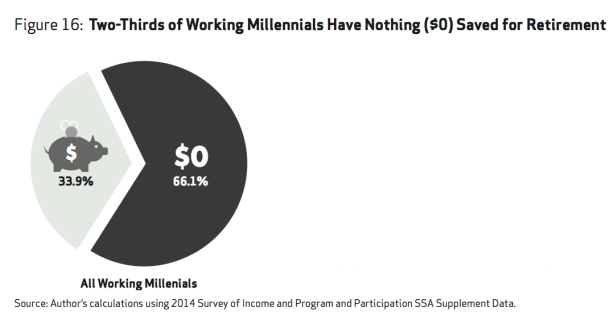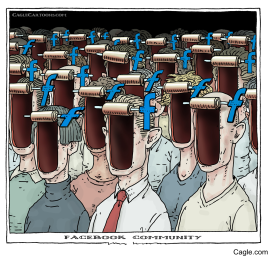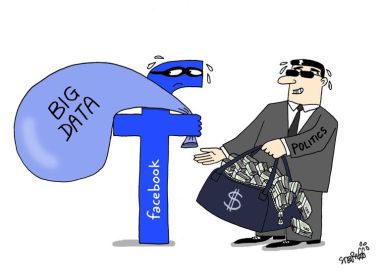Special mention
Archive for March, 2018
0
Cartoon of the day
Posted: 29 March 2018 in UncategorizedTags: Big Pharma, cartoon, CEOs, health insurance, healthcare, John Bolton, medicine, national security, Trump, war
Puertopias
Posted: 28 March 2018 in UncategorizedTags: capital, cryptocurrencies, debt, democracy, farming, power, Puerto Rico, rich, sovereignty, time, United States, utopia

It’s hard to imagine any kind of utopian project in Puerto Rico—especially after a decade of mounting economic crisis and a savage series of austerity measures, and then of course the widespread devastation of and notably slow recovery from Hurricane Maria.
But that’s exactly what’s taking place on the island, according to a recent report by Naomi Klein in The Intercept.


In fact, in the midst of the disaster, two radically different utopian visions are taking shape: one is a libertarian project of privatization and gated communities for newly minted cryptocurrency millionaires and billionaires; the other aims to create a decentralized form of sovereignty—of energy, food, and much else—for ordinary Puerto Ricans.
Neither vision is new; aspects of both were being articulated before the hurricane reduced much of the island to rubble. But they’ve taken on new urgency, in the midst of the collapse of the old model and the series of shocks—both economic and environmental—that have made contemporary Puerto Rico such a disaster zone.
In many ways, it’s a familiar story. We’ve seen this kind of battle of utopian visions in many cases of “disaster capitalism”: from Chile in the 1970s through post-Katrina New Orleans to the largest ever municipal bankruptcy in Detroit. Each created the possibility of criticizing the existing model and then radically remaking the economic and social landscape.
Puerto Rico is the latest site of this battle of fundamentally different utopian visions.
One such vision is sponsored by the administration of Governor Ricardo Rosselló Nevares, backed by the Financial Oversight and Management Board (which consists of seven members appointed by the President of the United States and one ex-officio member designated by the Governor of Puerto Rico, created by the Puerto Rico Oversight, Management and Economic Stability Act of 2016). Even before Hurricane Maria hit the island, the goal was to cut back on and eventually privatize government services, especially the power grid and public school system, and attract wealthy individuals and create corporate tax havens with massive tax breaks to an island that is functionally bankrupt. The latest step in this plan was announced at Blockchain Unbound, a three-day “immersive” pitch earlier this month at San Juan’s ornate Condado Vanderbilt Hotel for blockchain and cryptocurrencies with a special focus on why Puerto Rico will “be the epicenter of this multitrillion-dollar market.”
Department of Economic Development and Commerce Secretary Manuel Laboy Rivera
used the conference to announce the creation of a new advisory council to attract blockchain businesses to the island. And he extolled the lifestyle bonuses that awaited attendees if they followed the self-described “Puertopians” who have already taken the plunge. As Laboy told The Intercept, for the 500 to 1,000 high-net-worth individuals who relocated since the tax holidays were introduced five years ago — many of them opting for gated communities with their own private schools — it’s all about “living in a tropical island, with great people, with great weather, with great piña coladas.” And why not? “You’re gonna be, like, in this endless vacation in a tropical place, where you’re actually working. That combination, I think, is very powerful.”
The various elements of the other, opposing utopian vision also preceded Maria. Casa Pueblo, a decades-old community and ecology center with deep roots in the Cordillera Central, is one source.
Already a community hub before the storm, the pink house rapidly transformed into a nerve center for self-organized relief efforts. It would be weeks before the Federal Emergency Management Agency or any other agency would arrive with significant aid, so people flocked to Casa Pueblo to collect food, water, tarps, and chainsaws — and draw on its priceless power supply to charge up their electronics. Most critically, Casa Pueblo became a kind of makeshift field hospital, its airy rooms crowded with elderly people who needed to plug in oxygen machines.
Thanks also to those solar panels, Casa Pueblo’s radio station was able to continue broadcasting, making it the community’s sole source of in- formation when downed power lines and cell towers had knocked out everything else. Twenty years after those panels were first installed, rooftop solar power didn’t look frivolous at all — in fact, it looked like the best hope for survival in a future sure to bring more Maria-sized weather shocks.
But there’s also the Segunda Unidad Botijas 1 farm school in Orocovis (where students learn and practice (“agro-ecological” farming), Organización Boricuá (a network of farmers who use traditional Puerto Rican methods), the Citizens Front for the Audit of the Debt (which in the year before Hurricane Maria called for an audit of the island’s debt), and now JunteGente (the People Together, which has begun drafting a people’s platform, one that will unite their various causes into a common vision for a radically transformed Puerto Rico).
So, Puerto Rico is now the home of two radically different utopian visions—one that promises a playground for the super-rich, the other a new model of self-management for the majority of the island’s population.
But there are two problems confronting the second, more popular vision. First, it requires a level of political participation of the population “that has a lot of other things on its plate right now.” Thinking big and scrambling just to survive in the midst of disaster are often difficult to articulate and sustain simultaneously.
The other problem is time—the difference between “the speed of movements and the speed of capital.” As Klein explains,
Capital is fast. Unencumbered by democratic norms, the governor and the fiscal control board can whip up their plan to radically downsize and auction off the territory in a matter of weeks — even faster, in fact, because their plans were fully developed during the debt crisis. All they had to do was dust them off and repackage them as hurricane relief, then release their fiats. Hedge fund managers and crypto-traders can similarly decide to relocate and build their “Puertopia” on a whim, with no one to consult but their accountants and lawyers.
Clearly, the libertarian utopian project clearly has time—and the power of capital and government, in Puerto Rico and on the mainland—on its side. But that doesn’t mean it will win. It can be imposed by decree but it still requires popular consent.
Arguably, the power of that consent is more closely aligned with the
dream of a society with far deeper commitments and engagement — with each other, within communities, and with the natural systems whose health is a prerequisite for any kind of safe future.
The future of Puertopia will be the outcome of the battle between two radically different visions of utopia for the island and its people.
Cartoon of the day
Posted: 28 March 2018 in UncategorizedTags: Betsy Devos, cartoon, education, guns, inequality, John Bolton, national security, schools, student debt, students, United States, violence
Cartoon of the day
Posted: 27 March 2018 in UncategorizedTags: cars, cartoon, guns, hunger, NRA, technology, United Nations, United States, violence, world
Cartoon of the day
Posted: 26 March 2018 in UncategorizedTags: Brazil, cartoon, data, Facebook, ICE, immigrants, immigration, inequality, Jeff Sessions, police, politics, racism
Cartoon of the day
Posted: 25 March 2018 in UncategorizedTags: banks, Big Pharma, cartoon, data, deregulation, Facebook, opioids, politics, Senate, Trump, Wall Street
Cartoon of the day
Posted: 24 March 2018 in UncategorizedTags: banks, cartoon, Congress, data, deregulation, Facebook, Great Recession, John Bolton, politics, profits, recovery, regulation, Trump, United States

























